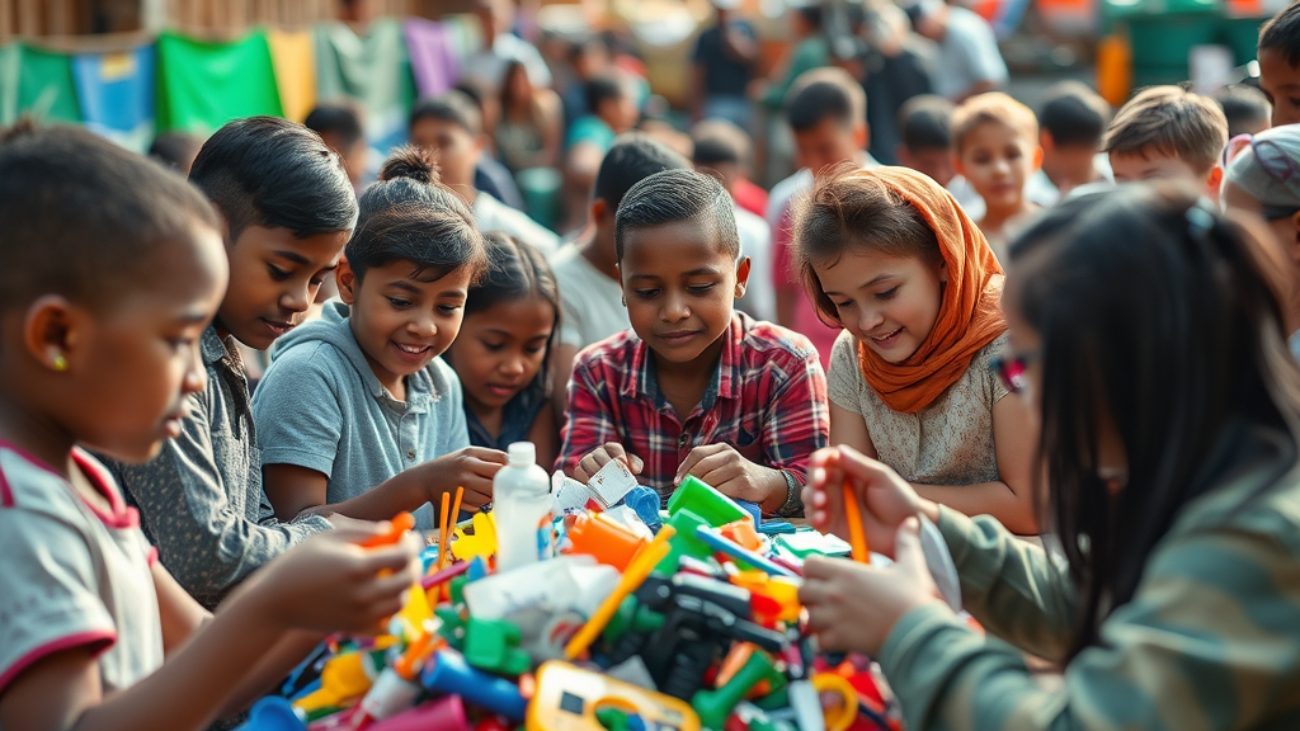In a world increasingly aware of the environmental crisis, innovative solutions are essential for addressing waste management and promoting sustainability. Eduplastics Impact is one such initiative that stands out, combining education and environmental stewardship to create a brighter future for communities and the planet.
Eduplastics focuses on turning plastic waste into valuable educational resources. By collecting 25,000 kgs of discarded plastics and transforming them into teaching materials, the initiative not only tackles the pressing issue of plastic pollution but also empowers students and educators alike. Through hands-on learning experiences, students gain valuable skills in sustainability, creativity, and problem-solving.
1. The Educational Transformation
Eduplastics engages students in activities that encourage them to think critically about their environment. By involving them in the process of recycling plastics into educational tools—such as art supplies, models, and even construction materials—students learn about the importance of sustainability while developing practical skills. In total, 42324 products have been recycled, underscoring the initiative’s impact on fostering a culture of responsibility toward the environment and inspiring the next generation of eco-conscious leaders.
2. Community Involvement
The impact of Eduplastics extends beyond the classroom. The initiative actively involves local communities, including four refugee communities, in its efforts, promoting awareness about plastic waste and its consequences. Workshops and community events encourage individuals to participate in waste collection and recycling initiatives, creating a shared sense of purpose. Through these collaborations, Eduplastics helps build a culture of sustainability that resonates throughout the community.
3. Empowering Individuals
Eduplastics has successfully trained and empowered 120 individuals, particularly from marginalized backgrounds, to engage in sustainable practices. This hands-on training equips participants with the skills needed to create products from recycled materials, enhancing their economic prospects and contributing to their communities’ overall resilience.
4. Economic and Environmental Benefits
Transforming waste into educational resources not only benefits the environment but also stimulates the local economy. Eduplastics has successfully reduced carbon emissions by 77,500 kgs, highlighting its significant contribution to mitigating climate change. By creating new products from recycled materials, Eduplastics generates income opportunities for community members, particularly women and marginalized groups. This aspect of the initiative highlights the interconnectedness of education, environmental sustainability, and economic empowerment.
5. A Model for the Future
Eduplastics serves as a model for other organizations seeking to address plastic waste and promote sustainability through education. By demonstrating that waste can be transformed into valuable resources, the initiative challenges conventional perceptions of waste and inspires innovative thinking.
In conclusion, Eduplastics Impact is paving the way for a sustainable future by merging education with environmental responsibility. Through its innovative approach, the initiative not only addresses the urgent issue of plastic waste but also empowers individuals and communities to create lasting change. As we continue to face the challenges posed by climate change and environmental degradation, initiatives like Eduplastics remind us of the power of creativity and collaboration in building a better world.

















